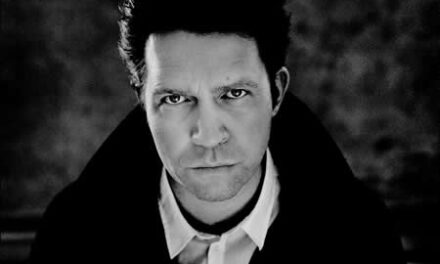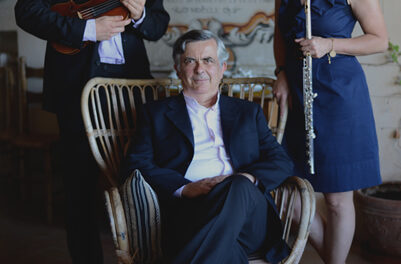The final concert of the Rice Toyota Sitkovetsky & Friends Chamber Series continued the tradition of featuring the soloists that appear as part of the Greensboro Symphony Orchestra concerts in a chamber setting. This recital included pianist Pedja Muzijevic, who was soloist with the GSO the night before in Beethoven’s “Choral Fantasy,” and composer/pianist Jakov Jakoulov, who was commissioned to write incidental music to O. Henry’s “The Gifts of the Magi” for the GSO.
These concerts tend to be more relaxed and less formal than the symphony, and Music Director Sitkovetsky usually chats with the audience, explaining some details about the compositions and telling stories about the soloists who often happen to be his friends. Perhaps the informality has gone too far — the lighting on the stage was inadequate for the audience to clearly see the musicians perform. Furthermore the printed program has become only a loose guide to the evening’s music making, with unlisted musicians playing music that is only announced from the stage.
Such was the case with this concert, which began with three movements from Max Bruch’s Eight Pieces for Clarinet, Viola, and Piano, Op. 83 performed by Kelly Burke, Scott Rawls, and Inara Zandmane. As Burke explained, the Trio provides an opportunity to hear the “middle voices” of the orchestra. It was a treat to wander down some uncharted paths, and these movements proved to be gems masterfully played with terrific ensemble.
Back to the printed program. Franz Schubert’s Rondo for Piano, 4 Hands (“Grand Rondo”), written during the composer’s final year, was finely played by Muzijevic and Jakoulov. The work is primarily a lightweight, fun exercise for the duo, although the mood does darken toward the end. Most of the virtuosity was delivered by Muzijevic, who played the treble part.
Jakoulov returned to the stage by himself to play an improvisation, something that is rarely heard in today’s concert halls. According to Jakoulov, this ad-lib was based on an art song by fellow Russian composer, Mikhail Glinka. Beginning with a shimmering, minimal texture, the pianist delivered a well-constructed essay that included fiery octaves and dramatic climaxes.
The evening concluded with a work originally programmed for the November chamber concert, Brahms Second Violin Sonata in A major, Op. 100, with Sitkovetsky and Muzijevic as the performers. This is a glorious, good-natured three-movement work, and the duo presented the music as if it were a conversation between two friends.
The opening Allegro amabile set the tone of lyricism that was to dominate the entire sonata. The work opens with a singing tune in the violin that is followed by a typical Brahmsian poignant melody in the piano. The middle movement combines both a slow movement (Andante) and a scherzo (Vivace), with an alternation between the two. The Allegretto grazioso (quasi Andante) third movement returns the radiant lyricism from the first movement. Double stops abound at the end of the movement, flawlessly played by Sitkovetsky.
At the outset of the evening, it was announced that the Sitkovetsky & Friends Chamber Series would again be underwritten next year by Rice Toyota, which is welcome news for chamber music enthusiasts who have learned that some of the best music in town emanates from the UNCG Recital Hall on Friday nights.












